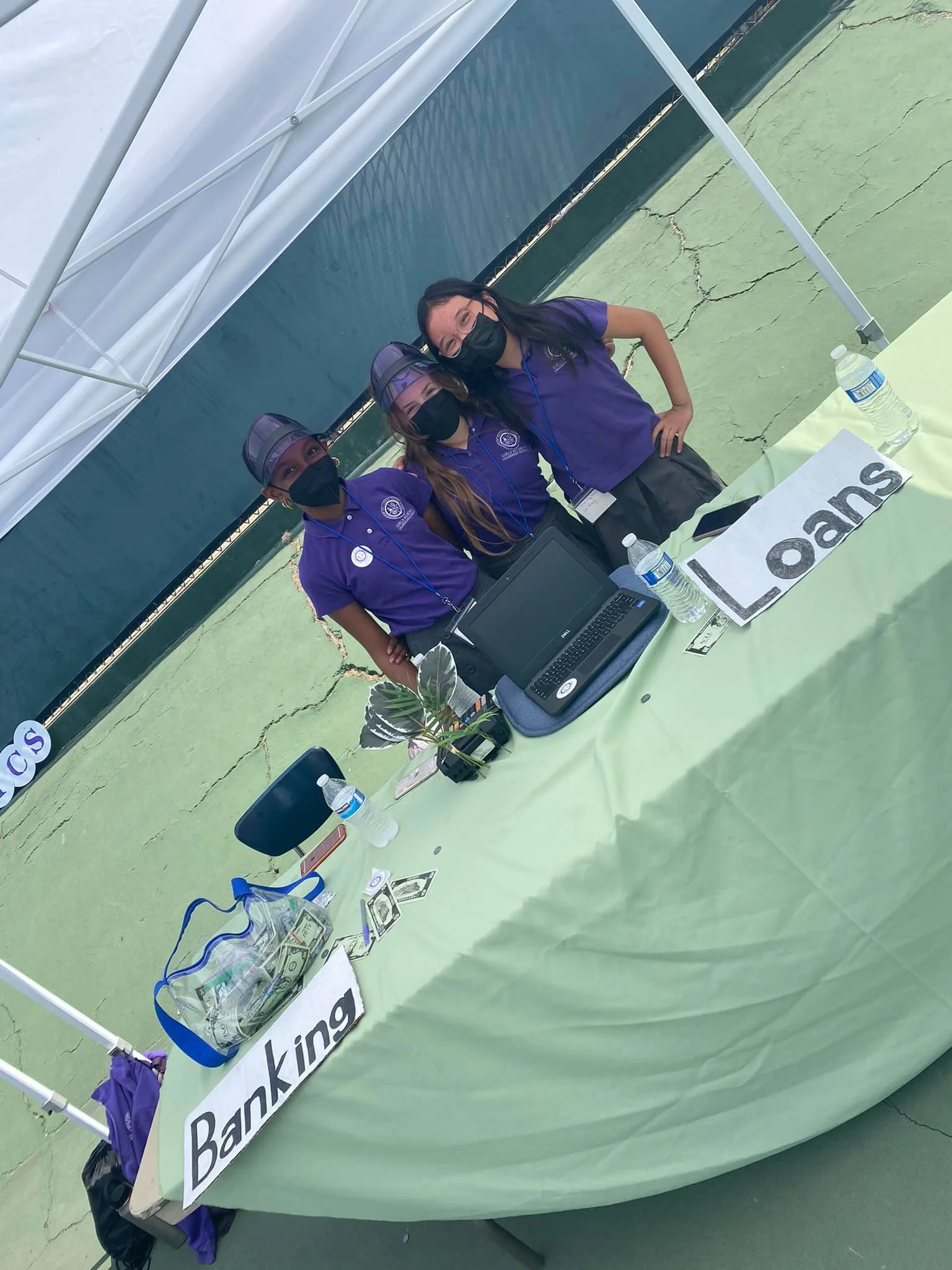2021 Grants
GIRLS ACADEMIC LEADERSHIP ACADEMY (LOS ANGELES)
The Girls Academic Leadership Academy in Los Angeles (GALA) is the first (and only) all-girls STEM-focused public school in California. Their students come from 81 zip codes; 65% of their students identify as people of color; 98% of the last two graduating classes went on to college, and more than 65% intend to major in STEM. GALA is a great fit for the Foundation, and we're happy to support them! This year we will support two programs.
Financial literacy math project
The Foundation will support a “Reality Store” project for all of GALA’s middle school students (300 students, ages 11-14 years old). This is a financial simulation that teaches financial planning, goal setting, decision making, and career planning. The young women will calculate, among other things, after-tax monthly salaries, percentages of income that must be spent on basic necessities, loan payments, and interest rates. The program will help students see math in a practical light and will highlight the importance of math in their everyday lives.
After several weeks of preparing materials and training student managers, teachers will introduce students to basic financial planning concepts in classroom preparation sessions. After the classroom component, the students will visit the “store” they helped to design and build, which will consist of 15-20 booths. Each student will visit the booths with a mock debit card and checkbook. Each booth will represent an aspect of adult life where money is involved, e.g., Statistics (where students choose their career and calculate their after-tax monthly paycheck), Banking, Investments, Housing, Utilities, Child Care, Insurance, and so on. When students visit a particular booth, they’ll have to spend money for that service or necessity, and deduct that amount from their paycheck or bank account. By visiting the booths (some of which are mandatory, and some of which are optional), the students learn about making wise financial decisions, and learn how much money they might need to make as an adult to sustain a particular lifestyle. (A full description of the Reality Store project can be found here: http://www.schenectadybpw.org/attachments/001_Reality%20Store.pdf)
The grant is for $4173, which will benefit 300 students.
Biomedical elective
GALA offers a Biomedical Technology elective to high school students that introduces young women to the broad concepts of biomedical technology, including biomedical research, ethics in science, animal research, vaccines, DNA, human physiology, and forensics. This class uses a wide range of teaching techniques, such as role-playing, class debates, guest speakers, and labs, to encourage and entice students to engage with science. It is also very much a hands-on course, with students participating in dissections, building prosthetics, and lab experiments.
The course requires students to use numerous single-use kits and labs, for example DNA Extraction, Forensics DNA Fingerprinting, Morphology of Cancer Cells, and the Effect of Disinfectants and Antiseptics on Bacteria. The course also requires charts and labs that are used by the entire class.
Foundation funds of $3021 will be used for all the necessary materials for the 40 students in the class.
THE GIRLS’ MIDDLE SCHOOL (PALO ALTO, CALIFORNIA)
The Foundation has supported programs at The Girls’ Middle School since 2010. This year, we’re happy to continue our support with two valuable programs.
Build-A-Circuit Kits
As we have for several years in the past, this year we will support GMS’s use of Chibitronic circuit kits. The kits, which were designed by a woman affiliated with the MIT Media Lab, help instructors explain how electrical gates -- the basis of all computer chips -- work. The girls build several simple circuits for themselves, connecting batteries and LEDs in various ways with conductive copper tape (no soldering required). As GMS noted, “for many girls, this is their very first experience making an electronic circuit and these materials make abstract concepts accessible, understandable, and lead to successful completion.” They also encourage creativity within a scientific framework.
The students take home their completed projects at the end of the unit and can use them as personalized reference guides. This year, we will fund 65 kits, for the entire Eighth Grade class, for a total of $1,660.
Materials for a new science curriculum
The Full Option Science System (FOSS) is a research-based science curriculum for grades K-8 developed at the Lawrence Hall of Science, University of California, Berkeley. (You can find more details here: https://fossnextgeneration.com/our-complete-system/ ) FOSS is also an ongoing research project dedicated to improving the learning and teaching of science. It is the most adopted science curriculum in the U.S. and has proven to engage students by inviting them to interact with observable phenomena. FOSS is recognized by experts and organizations across the country for its proven quality, rigor, support, and effectiveness.
The FOSS curriculum is designed for repeated use and therefore will enhance the learning experience of GMS students for multiple years. The Foundation will provide the $1800 needed to purchase a complete FOSS kit.
STUDENT LEADERSHIP NETWORK (NEW YORK CITY)
We have supported Student Leadership Network (and its predecessor organizations) with a variety of grants since 2007 and we're happy to continue our support again this year. Hundreds of young women get a quality single-sex education at these schools across New York City.
Ecology program
The Foundation will support a winter ecology program for 25-30 students from SLN’s four New-York-area schools (Astoria, Booklyn, East Harlem, Queens). The Christodora Winter Ecology Program is a seven-week inquiry-based science program for middle school students, covering topics including:
human impact on the environment
where drinking water comes from
conservation
the impact of urban sprawl on the environment and animals
Activities include dissecting owl pellets and identifying what the owl ate, and examining how animal skull formations show if the animal was a predator or prey.
The grant is for $4500, which covers 25-30 students.
